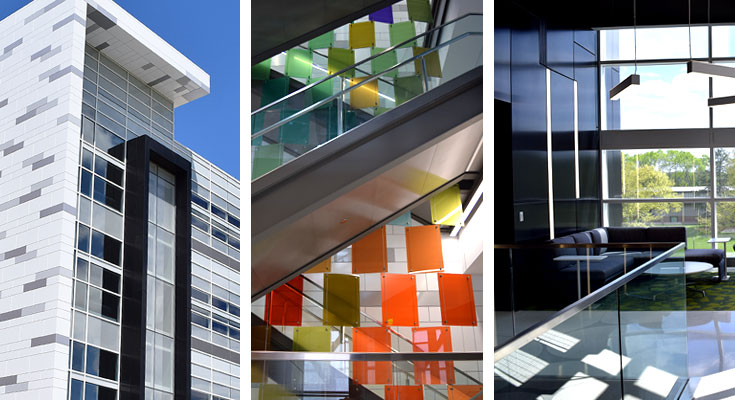Constructing the campus of tomorrow, today
Behind the many Spartans who are researching solutions for the world's most pressing challenges are cutting-edge facilities that provide a platform for discovery. At Michigan State University, ensuring the excellence of those facilities is just as important as the work they support.
To minimize the environmental impact of new buildings, all new construction and major renovation projects on MSU's campus follow the United States Green Building Council's Leadership in Energy and Environmental Design (LEED) standards. These guidelines cover numerous sustainable building practices, including reuse of materials, recycling of construction waste, minimized energy consumption and the use of low-flow fixtures throughout the space to reduce water consumption.
As a land-grant university, these standards embody the long-standing value of stewardship of natural resources, while also supporting MSU's mission to build a healthier tomorrow through the convention of research.

"MSU has always built with sustainability in mind," said Lynda Boomer, director of Planning, Design and Construction at MSU Infrastructure Planning and Facilities, "Adhering to the LEED standards allows us to approach sustainability holistically throughout the entire project."
During site selection, contractors work closely with campus planning officials to ensure that land is used efficiently. Campus trees are inventoried and fenced off to avoid damage, and sustainable construction materials are selected. As projects are completed, MSU also ensures that the waste generated is handled sustainably, either through MSU Recycling or another vendor.
"MSU requires all contractors to recycle at least 50% of construction waste," said Kris Jolley, director at MSU Surplus Store and Recycling Center, "When we get involved, we're able to divert 60% through our program, with emphasis not only on recycling, but also on reuse."
A new building embodying these green construction practices is MSU's Bio Engineering Facility, a four-story, 130,000-square-foot laboratory that will serve as a hub for interdisciplinary research when it opens in the fall. Fitted with network controlled LED lights, secure bike parking facilities and low energy and water use fixtures, the Bio Engineering Facility showcases MSU's commitment to develop a more sustainable campus community.
As students and faculty continue to research solutions to the world’s most urgent issues, MSU is building a community that both supports the future growth of new, sustainable facilities and protects our iconic campus landscape.

